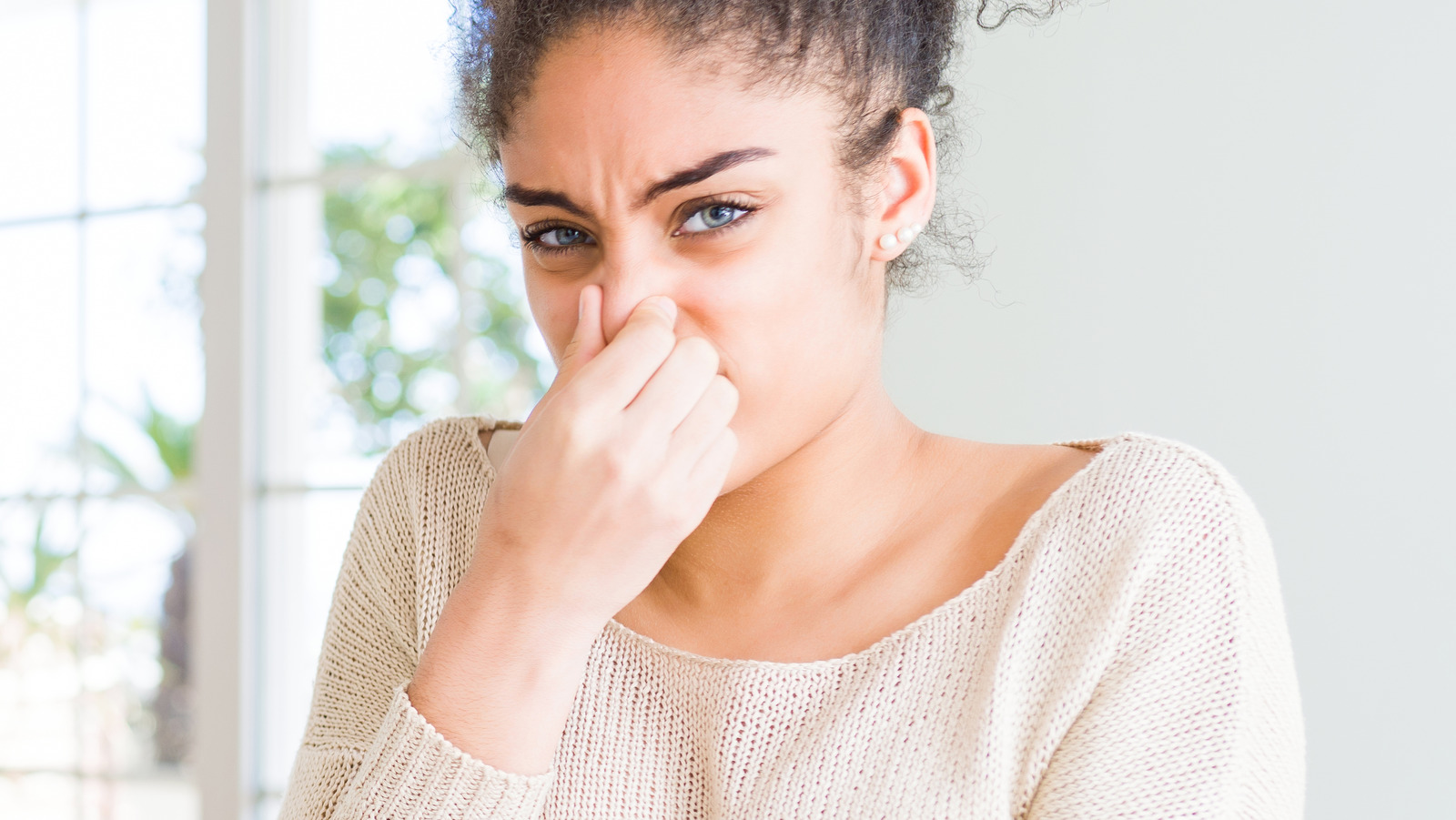

FAQs
What Is Post Swim Flatulence
Modified: August 5, 2023
Find answers to your general questions about post swim flatulence. Learn what it is, its causes, and how to manage this embarrassing condition.
(Many of the links in this article redirect to a specific reviewed product. Your purchase of these products through affiliate links helps to generate commission for Under-tec.com, at no extra cost. Learn more)
Table of Contents
Introduction
Swimming is a popular form of exercise and recreation that offers numerous health benefits. However, one aspect of swimming that is rarely discussed is the occurrence of post-swim flatulence. For those who may be unfamiliar with the term, post-swim flatulence refers to the release of gas from the digestive system following a swimming session.
This phenomenon may seem unusual at first, but it is actually quite common among swimmers. Many individuals experience an increase in gastrointestinal gas production after swimming, which can result in feelings of bloating, discomfort, and the need to pass gas. While it may not be a topic of polite conversation, understanding why post-swim flatulence occurs and how to manage it can greatly improve the swimming experience and overall comfort levels.
It is worth noting that post-swim flatulence is not exclusive to swimming and can occur after engaging in other physical activities as well. However, the specific movements and conditions experienced in swimming may contribute to a higher prevalence of gas and bloating in comparison to other forms of exercise. This article will explore the causes of post-swim flatulence, its effects on swimmers, and provide tips for prevention and management.
Definition of Post Swim Flatulence
Post-swim flatulence, also known as swim-induced flatulence or swimmer’s gas, refers to the release of excess gas from the digestive system after engaging in a swimming session. This phenomenon is characterized by the production of gas in the gastrointestinal tract, which can result in bloating, discomfort, and the need to pass gas.
The digestive system naturally produces gas during the process of breaking down and digesting food. This gas primarily consists of swallowed air and gases produced by the gut bacteria during the fermentation of undigested carbohydrates. In normal circumstances, the body is able to pass this gas through belching or flatulence without any significant discomfort.
However, swimming can increase the likelihood of excessive gas production and trapped gas in the digestive system. The specific combination of movements involved in swimming, including repetitive bending, twisting, and compression of the abdomen, can contribute to the accumulation of gas. Additionally, the swallowing of water while swimming can introduce additional air into the stomach, further contributing to gas buildup.
It is important to note that post-swim flatulence varies from person to person. Some individuals may experience mild discomfort and minimal gas production, while others may experience more significant symptoms. The severity and frequency of post-swim flatulence can also be influenced by factors such as diet, hydration, and individual sensitivity to gas-producing foods.
Understanding the definition of post-swim flatulence is essential in recognizing its symptoms and distinguishing it from other gastrointestinal issues. While it may be an uncomfortable and sometimes embarrassing occurrence, it is a relatively common phenomenon that can be managed with the right knowledge and strategies.
Causes of Post Swim Flatulence
There are several factors that contribute to the occurrence of post-swim flatulence. Understanding these causes can help swimmers effectively manage and prevent excessive gas buildup in the digestive system. Here are some of the main causes:
- Ingestion of Air: When swimming, it is common to accidentally swallow water. This ingestion of air, along with water, can lead to an increase in the amount of gas in the stomach. Additionally, swimmers who hold their breath underwater or perform certain strokes that require breath holding may inadvertently swallow more air, further contributing to post-swim flatulence.
- GI Motility: The movement of the gastrointestinal (GI) tract can be affected by swimming. The repetitive bending, twisting, and compression of the abdomen during swimming can disrupt normal GI motility, leading to the buildup of gas in the digestive system. This can result in feelings of bloating and discomfort after swimming.
- Swallowing Chlorinated Water: Swimming pools are typically treated with chlorine to maintain cleanliness. Swallowing chlorinated water can disrupt the balance of gut bacteria, leading to increased gas production. Additionally, chlorinated water may have a laxative effect, causing changes in bowel movements and gas buildup.
- Dietary Factors: The foods and beverages consumed before swimming can also contribute to post-swim flatulence. Certain gas-producing foods, such as beans, lentils, broccoli, cabbage, and carbonated drinks, can increase the likelihood of gas production in the digestive system. Swimmers who consume these foods before swimming may experience more severe post-swim flatulence symptoms.
- Dehydration: Dehydration can affect gastrointestinal health and motility, leading to an increased risk of gas buildup in the digestive system. It is important for swimmers to stay adequately hydrated before, during, and after swimming to minimize the occurrence of post-swim flatulence.
It is important to note that these causes may vary from person to person, and individuals may experience different levels of post-swim flatulence depending on their sensitivity and unique factors. Identifying and understanding the specific causes can help swimmers make informed choices regarding their swimming habits and diet to manage and prevent post-swim flatulence.
Effects of Post Swim Flatulence on Swimmers
While post-swim flatulence might be perceived as a minor inconvenience, it can have a range of effects on swimmers that go beyond mere discomfort. Here are some of the effects that swimmers may experience as a result of post-swim flatulence:
- Bloating and Discomfort: One of the most common effects of post-swim flatulence is a sensation of bloating and discomfort in the abdominal region. The excessive gas in the digestive system can cause the abdomen to feel distended and create a sense of fullness, making it difficult for swimmers to move with ease and enjoy the activity.
- Reduced Performance: Post-swim flatulence can also affect swimming performance. The discomfort and bloating caused by excessive gas can hamper a swimmer’s ability to maintain proper form and technique. It can lead to a decrease in speed, endurance, and overall swimming efficiency.
- Embarrassment: Experiencing post-swim flatulence can be embarrassing for swimmers, especially in public settings such as community pools or swim competitions. The audible sounds and odors associated with flatulence may cause social discomfort and self-consciousness, potentially impacting the overall enjoyment of swimming.
- Impact on Confidence: The occurrence of post-swim flatulence can also have an emotional impact on swimmers. It may erode their confidence and make them hesitant to participate in swimming activities or socialize with fellow swimmers. The fear of potential embarrassment may lead to a loss of enthusiasm and a decrease in overall confidence levels.
- Disruption of Concentration: The discomfort and distraction caused by post-swim flatulence can significantly disrupt a swimmer’s concentration and focus. Instead of being fully present in the moment and enjoying the activity, swimmers may find themselves preoccupied with managing their symptoms and worrying about potential episodes of flatulence.
It is important to address the effects of post-swim flatulence on swimmers as they can impact both physical and mental aspects of the swimming experience. By understanding and taking steps to manage and prevent post-swim flatulence, swimmers can enhance their overall comfort, performance, and enjoyment in the water.
Prevention and Management of Post Swim Flatulence
While post-swim flatulence is a common occurrence among swimmers, there are several strategies that can help prevent or manage excessive gas buildup and its associated discomfort. Here are some tips for preventing and managing post-swim flatulence:
- Be Mindful of Diet: Pay attention to your diet before swimming. Avoid consuming gas-producing foods or beverages, such as beans, lentils, broccoli, cabbage, and carbonated drinks, right before swimming. Opt for lighter and easily digestible meals that are less likely to contribute to excessive gas production.
- Stay Hydrated: Proper hydration is crucial to maintain proper gastrointestinal health and prevent post-swim flatulence. Drink enough water throughout the day, including before, during, and after swimming, to stay adequately hydrated and support healthy digestion.
- Swim in Well-Maintained Pools: Choose swimming pools with good water quality and proper chlorine levels. Chlorinated water that is properly maintained can help minimize the disruption of gut bacteria and reduce the likelihood of excessive gas production.
- Practice Proper Breathing Techniques: Pay attention to your breathing technique while swimming. Try to exhale fully underwater to release any trapped air in the lungs and minimize swallowing air. This can help reduce the amount of gas in the digestive system.
- Take Breaks and Relax: If you start to feel bloated or discomfort during swimming, take short breaks to relax and allow your digestive system to settle. Perform gentle stretches or breath-holding exercises to help relieve gas and promote better digestion.
- Monitor and Modify Swimming Technique: Be aware of how your swimming technique may be contributing to post-swim flatulence. Seek guidance from a swimming instructor or coach to ensure that your movements and body positioning are optimized to minimize gas buildup in the gastrointestinal tract.
- Consider Over-the-Counter Remedies: In cases where post-swim flatulence becomes persistent or severe, over-the-counter remedies such as simethicone can be used to help alleviate gas and reduce discomfort. However, it is important to consult with a healthcare professional before using any medication or supplement.
By implementing these preventative measures and management strategies, swimmers can minimize the occurrence of post-swim flatulence and enjoy a more comfortable and fulfilling swimming experience.
Conclusion
Post-swim flatulence, while not commonly discussed, is a phenomenon that many swimmers experience. The release of excessive gas from the digestive system after swimming can cause discomfort, bloating, and embarrassment. Understanding the causes of post-swim flatulence and implementing prevention and management strategies can greatly improve the swimming experience.
Factors such as swallowing air, disrupted gastrointestinal motility, ingestion of chlorinated water, dietary choices, and dehydration contribute to post-swim flatulence. By being mindful of these factors, swimmers can make informed decisions to minimize gas buildup in the digestive system.
Effects of post-swim flatulence go beyond physical discomfort and can also impact swimming performance, confidence levels, and concentration. Acknowledging these effects allows swimmers to address the issue proactively and seek ways to manage and prevent excessive gas production.
Preventive measures such as monitoring diet, staying hydrated, practicing proper breathing techniques, and choosing well-maintained swimming pools are effective in reducing post-swim flatulence. Additionally, taking breaks, relaxing, and modifying swimming technique can provide relief from bloating and discomfort during swimming sessions.
In cases where post-swim flatulence persists or becomes severe, over-the-counter remedies may be considered, but consulting with a healthcare professional is essential.
By integrating these strategies into their swimming routine, swimmers can enjoy a more comfortable and enjoyable experience in the water, free from the inconveniences of post-swim flatulence.










